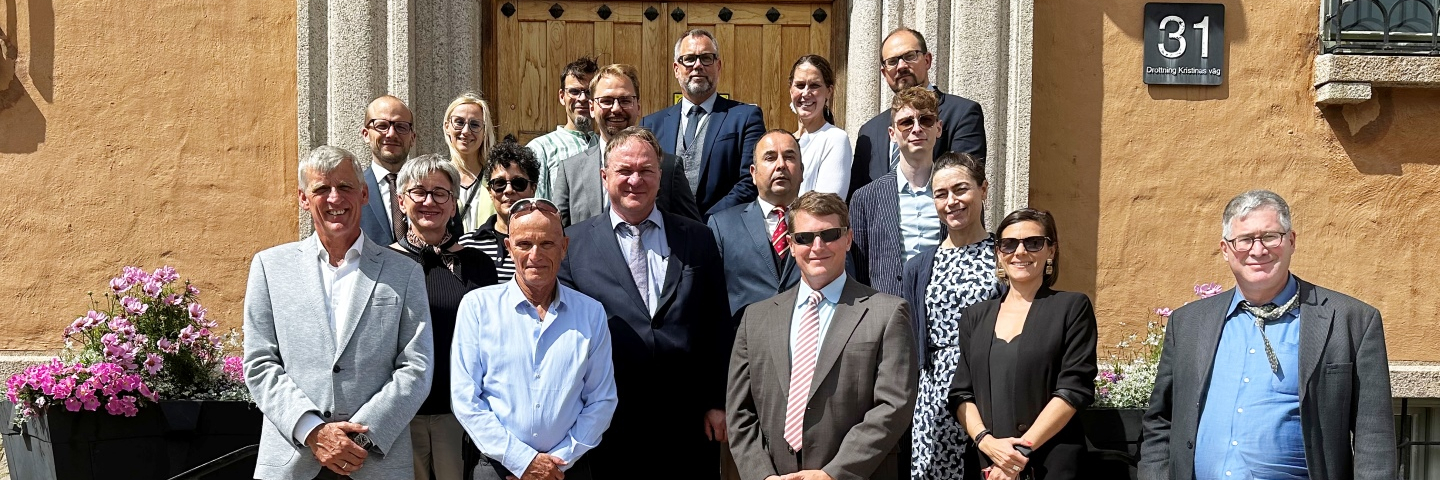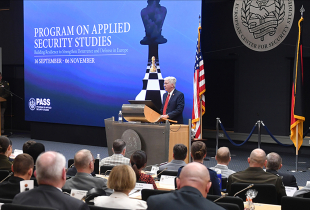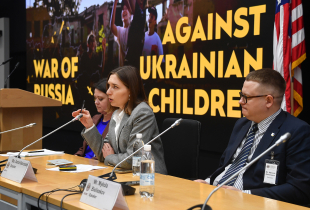
Consortium Holds Workshop to Build Resiliency Curriculum
The Partnership for Peace Consortium, in conjunction with the Swedish Defence University, held a workshop in Stockholm, Sweden, July 4-6 that continues the effort to create a reference curriculum on the topic of resilience.
The reference curriculum, to be published by NATO, will be used in Partner professional military education institutes so as to build interoperability with NATO Allies.
“With this curriculum, we provide NATO and partner nations a guiding framework for developing courses, study programs and trainings on the topic of resilience and the broad spectrum of issues related to the concept,” said Olaf Garlich, Deputy Executive Director of Partnership for Peace Consortium. “This supports Allies and Partners in their aim of further increasing their interoperability and mutual understanding. Ultimately, it helps to create a more stable security environment.”
The three-day workshop joined 17 government officials, academics and defense educators from 11 different countries.
Camilla Unsgaard, Course Coordinator at SEDU Centre for Societal Security, welcomed the workshop participants while underscoring the importance of a comprehensive approach towards the concept of resilience, its successful implementation into concepts of comprehensive and total defense and the appreciation of the different aspects, such as Women, Peace and Security.
Ambassador Shota Gvineria from the Baltic Defence College, Estonia, set out the concept of resilience and explained his perspective on the term as well as associated approaches and topics in his keynote address, to prepare participants for the coming days and the various work processes.
The four working groups focused on the entire spectrum of resilience and considered the topic from a variety of perspectives.
- Group one focused on the fundamentals of resilience with an introduction to the concept of resilience, aspects, levels and elements of resilience as well as resilience in the defense and security context.
- Group two looked into the key dimensions of resilience, worked out the interdependencies between resilience and instruments of national power, and integrated this into a whole of government approach. Other topics included the international cooperation and resilience in multinational contexts and national resilience approaches as case studies for future students.
- Group three worked on the important topic of social cohesion and supranational approach to resilience, which included societal resilience, establishing and maintaining societal resilience, challenges to societal resilience, natural disasters and the framing whole-of-society approach.
- Group four framed the work of the other groups with a systematic and practical-oriented approach on developing and planning for resilience, implementing, managing, and sustaining resilience, and finally an introduction into methods to assess resilience.

